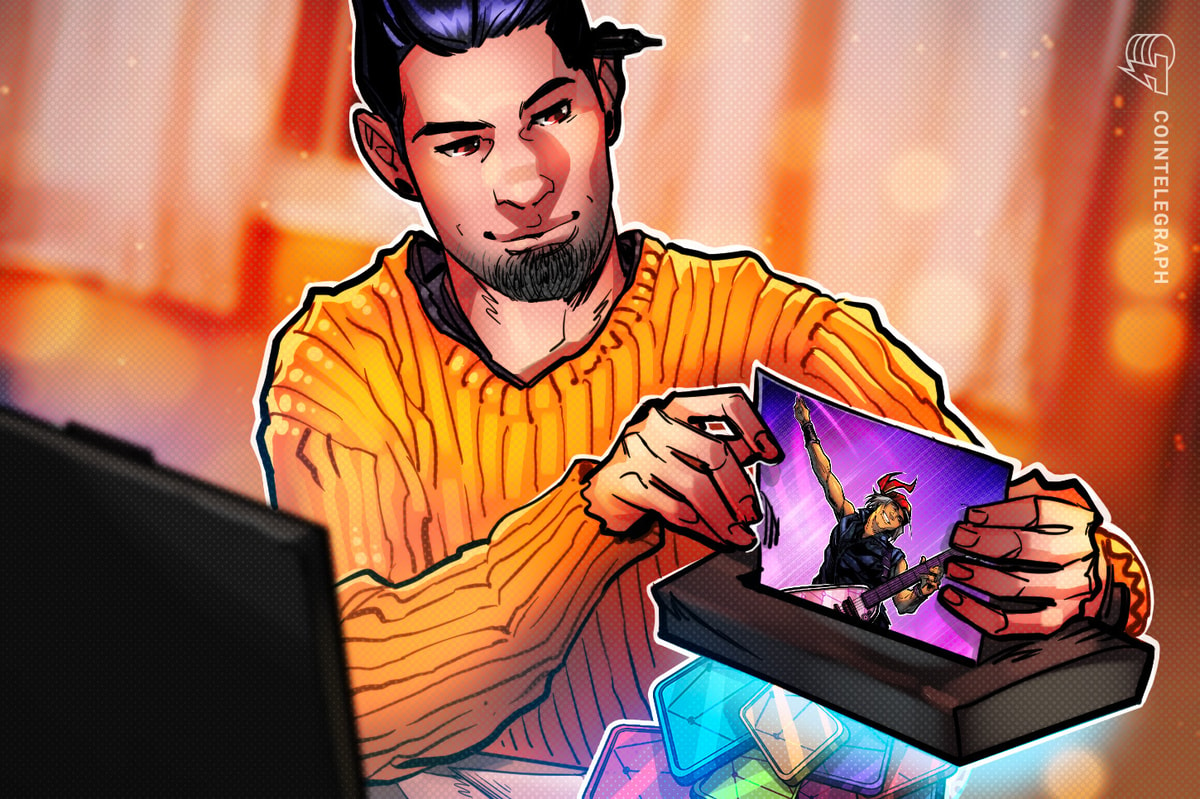Despite the crypto winter, nonfungible tokens (NFTs) continue to draw interest. This has become apparent as many brands and retailers have started to
Despite the crypto winter, nonfungible tokens (NFTs) continue to draw interest. This has become apparent as many brands and retailers have started to offer digital NFTs attached to physical products. Known as “phygitals,” these offerings allow real-world products to be tied to digital NFTs.
For example, RTFKT — a digital fashion and collectible company — recently launched a project called Cryptokicks iRL. According to sources, RTFKT is creating digitally-designed sneakers backed by a physical product.
RTFKT’s official Twitter account recently tweeted that Lace Engine NFT holders will be able to reserve a pair of Cryptokicks iRL, which can then be redeemed for its physical version starting May 1, 2023.
1/ We are allowing all Lace Engine holders to reserve their sneakers in the RTFKT Interdimensional Hub. This will allow holders till May to figure out a US shipping address.
To pick up a Lace Engine NFT on secondary:https://t.co/PoPwbooYqG
— RTFKT (@RTFKT) December 12, 2022
Redeeming physical NFTs can be challenging
While the concept behind phygitals may be appealing to brands and consumers, redeeming physical NFTs has proven to be challenging. For instance, in some cases, NFT holders may only need to provide a wallet address to redeem a digital NFT linked with a physical item. Yet, this makes it difficult to collect personal information, such as shipping details, from NFT holders.
Jacob Ner-David, CEO at wine marketplace Vinsent, told Cointelegraph that he encountered such a problem after launching two NFT drops tied to physical bottles of wine. Ner-David explained that at the end of 2021, Vinsent launched both a public and private NFT drop. This allowed consumers to purchase tokenized bottles of fine wine that could be redeemed for physical bottles one year later.

Although the project was successful, Ner-David shared that only a small percentage of NFT holders have come forward to claim their physical bottles of wine. According to Ner-David, this is due to challenges with the redemption process and poor communication to NFT holders that their wine is ready to be claimed.
“The only way we can communicate with our NFT holders is through Discord, Twitter and Telegram. We need to collect their shipping information,” he said.
Recent: How time-weighted average price can reduce the market impact of large trades
Ner-David elaborated that 15% of NFT holders associated with the private drop have claimed their physical bottles of wine, while close to 30% involved with the public drop have redeemed their bottles.
“We have learned that there must be a redemption mechanism in place before launching a physical NFT drop,” he said. Ner-David added that storing the unclaimed wine bottles has become problematic, noting that these continue to be held at the Israel-based Jezreel Valley Winery.
Due to issues such as these, companies launching physical NFT drops have started taking different approaches. For example, Jeff Malki, strategic adviser for NFT firm NXTG3NZ, told Cointelegraph that he helped facilitate the 7220 NXTG3NZ NFT digital sneaker drop rapper Lil Durk launched in March 2022.
Malki explained that physical sneakers tied to these digital NFTs would be available in Q1 of 2023. He added that this particular drop is targeted toward non-Web3 natives, noting that users have the option to submit their physical shipping addresses upon purchase.
“We expect 80% of our users to be non-crypto holders. If they wish to submit their data, they can. It would be ideal for NFT owners to input their shipping data immediately upon purchase, so the items are shipped automatically,” he said.

In addition, Malki noted that NXTG3NZ might implement a first-come, first-served system. This would mean that a top-tier group of NFT holders could claim their physical sneakers but must choose their item and redeem it immediately. If this isn’t properly facilitated, another user could come forward to claim the physical item. Malki said:
“NFTs are cutting edge and we are all trying to innovate. There are no blueprints for this process. Brands and companies are interested in working on phygital projects, but there is still a lot of risk involved.”
Although this may be the case for some phygital projects, others claim to have found successful strategies. For example, Charlotte Shaw, chief marketing officer of BlockBar — an NFT project offering digital and physical wine founded in 2021 — told Cointelegraph that the firm offers NFT owners storage, insurance, a marketplace for resales and global shipping.
“Each BlockBar NFT corresponds to an actual physical bottle of wine or spirit, which bottle owners can resell, collect, gift or at any time ‘burn’ in exchange for the physical bottle,” she said.
Shaw elaborated that physical bottles are shipped from BlockBar’s facility in…
cointelegraph.com
